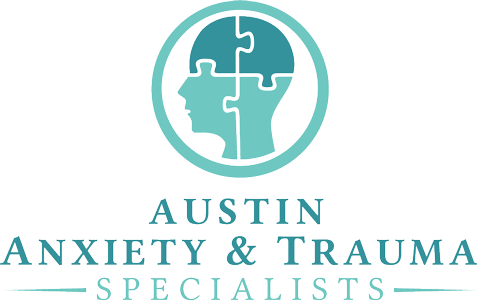Picture this: You lie awake at night, your mind racing with thoughts of unpaid bills, looming debts, and an uncertain financial future. Financial stress is an issue many of us face. According to the American Psychological Association’s Stress in America 2022 survey, the majority of adults contribute significant sources of stress to the economy (69%) and money (66%).
The burden of financial worries can certainly feel overwhelming and affect many aspects of our lives. Financial stress can take a toll on our mental health, causing stress, anxiety, and even a sense of hopelessness. In this blog post, we will explore the connection between financial stress and mental health, discuss the common causes of financial stress, and provide practical coping strategies to help alleviate financial anxiety and improve your emotional well-being.
The Impact of Financial Stress on Your Health
Financial stress often acts as a catalyst for a range of mental health issues. The constant worry about money can lead to feelings of helplessness, hopelessness, and a loss of control. But financial stress can have a wide range of impacts on overall health, beyond just mental well-being. Here are some ways financial stress can affect our physical and mental well-being:
Anxiety and Depression
The uncertainty surrounding financial stability can trigger persistent anxiety, characterized by excessive worry, restlessness, and difficulty concentrating. Financial stressors can also exacerbate symptoms of depression, such as sadness, loss of interest, sense of helplessness, and a lack of motivation.
Increased Risk of Developing Mental Health Disorders
Prolonged financial stress may increase the risk of developing mental health disorders, including generalized anxiety disorder, major depressive disorder, and even substance abuse disorders. Studies have shown that people in debt are more likely to experience mental health issues than those who are debt-free. It is crucial to recognize the signs and seek support promptly.
Strained Relationships and Social Isolation
Financial stress can strain relationships as financial concerns seep into personal dynamics, leading to conflicts, communication breakdowns, and feelings of resentment. Moreover, the unnecessary shame some might feel associated with financial struggles can lead to social isolation and a reluctance to seek help or support.
Neglected Health Care
Financial stress often leads to delayed or neglected healthcare as individuals may avoid seeking medical treatment due to cost constraints. This can exacerbate health conditions, increase the risk of complications, and add to overall anxiety and stress about your well-being.
Increased Risk of Physical Health Issues
The constant strain can lead to unhealthy coping mechanisms, such as overeating or adopting unhealthy diets, resulting in weight gain or loss and contributing to gastrointestinal problems. Prolonged stress also increases the risk of developing chronic conditions like diabetes, high blood pressure, and heart disease. Additionally, disrupted sleep patterns due to financial worries can weaken the immune system and exacerbate headaches and other health issues, creating a cycle that further compromises overall well-being.
Read: “I’m not good at anything”: How to Change the Way You Think About Yourself
Common Causes of Financial Stress
Understanding the underlying causes of financial stress can help us address them more effectively. Here are some common factors that contribute to financial stress:
- Pre-existing mental health conditions, such as generalized anxiety, stress, or depression
- Unemployment or underemployment, or unstable income
- Excessive debt, including credit card debt, student loans, or medical bills
- Financial insecurity, lack of savings, or living paycheck to paycheck
- Medical expenses and healthcare costs
Read: How To Cope in Times of Crisis
Recognizing the Signs of Financial Stress
To effectively cope with financial stress, it is essential to identify the signs and symptoms early on. Here are some common indicators of financial stress:
Behavioral and Emotional Indicators
Persistent worry about money, changes in eating or sleeping patterns, irritability, mood swings, and a constant preoccupation with financial matters.
Physical Symptoms
Headaches, gastrointestinal issues, muscle tension, fatigue, and difficulty sleeping are all physical manifestations of financial stress.
Cognitive and Psychological Effects
Difficulty concentrating, reduced productivity, feelings of inadequacy or shame, low self-esteem, and a heightened sense of vulnerability.
Read: Am I having an anxiety attack?
Strategies to Reduce Financial Stress and Improve Mental Well-being:
Coping with financial stress requires a multi-faceted approach that addresses both the practical and emotional aspects of our lives. Here are some strategies to help you regain control and promote mental well-being:
Create a Realistic Budget
Developing a budget based on your income and expenses can provide a clear overview of your financial situation. Prioritize essential expenses and mindfully find ways to cut back on non-essential items. This process can provide a sense of structure and control over your finances.
Seek Professional Financial Advice
Consider consulting a financial advisor or credit counselor who can provide expert guidance tailored to your specific circumstances. They can help you develop strategies to manage debt, explore financial assistance programs, and optimize your financial resources. Many financial advisors offer their advisory services free of charge.
Prioritize Self-care and Stress Management
Engage in activities that promote relaxation, such as mindfulness exercises, deep breathing techniques, journaling, or meditation. Establishing self-care routines, including regular exercise, quality sleep, and healthy eating, can improve your overall well-being and help manage stress effectively.
Explore Government and Community Resources
Research local organizations or government programs that offer financial assistance, educational workshops, or job placement services. Your local Buy Nothing Community may also be a helpful resource for free food, clothing, supplies, services, and household items. These resources can provide valuable support during challenging times and help alleviate financial stress.
Break the Silence and Seek Support
Reach out to loved ones or trusted friends to share your feelings and experiences. Talking openly about financial stress can help alleviate its burden and provide emotional support. Additionally, consider joining support groups or seeking professional counseling to address both the practical and emotional aspects of financial stress.
Consider Therapy
It’s normal to feel stressed about finances. But when worrying about your wellbeing due to finances starts to disrupt your life and mood on a regular basis, there may be underlying causes. Therapy can be a valuable resource for managing stress, anxiety, or depression related to financial challenges. A licensed therapist can provide a safe and non-judgmental space to explore your emotions, develop healthy coping strategies, and work towards regaining the feeling of control over your own life.
Read: 5 Benefits of Going To Therapy Even When You Feel “Fine”
Nurturing Mental Well-being Amidst Financial Stress
Financial stress can have far-reaching effects on our mental and physical health. By implementing these strategies and seeking professional support when needed, you can take proactive steps to reduce stress and regain control over your finances. Remember to be patient with yourself and practice self-compassion along the way.
If you feel stuck, or if the stress just doesn’t seem to go away, consider seeking help from a mental health professional. Stress, anxiety, and depression are all highly treatable mental health conditions. Book a virtual therapy session with us at Austin Anxiety and Trauma Specialists and we’ll match you with a therapist who can best help you manage anxiety, depression, stress, and symptoms that may be related to your condition. It can get better. We can help.






